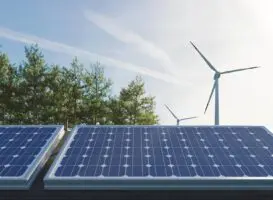French and Spanish energy regulators have rejected the controversial Franco-Spanish South Transit East Pyrenees (STEP) gas pipeline, the first stage of the mammoth Midi-Catalonia (MidCat) gas pipeline, a move which protestors hope will starve investment, and which could ultimate scrap the pipeline altogether.
The French Energy Regulatory Commission (CRE) and the National Commission on Markets and Competition (CNMC) jointly announced on Tuesday that they were rejecting the request presented by French natural gas carrier Teréga and Spanish energy company Enagás, claiming that the STEP project does not respond to market needs, is too costly, and is not mature enough to be eligible for a decision by regulators.
The €3 billion MidCat project was already backed by the European Union in an effort to reduce regional dependence on Russia for gas, however, the project has been widely contested by environmental and energy groups across Europe. Teréga and Enagás have apparently been touting the importance of the project since 2005 and in 2013 it was added to the European Commission’s Projects of Common Interest list.
A report published in May of 2018 by Friends of the Earth Europe, conducted in conjunction with Les Amis de la Terre France, Ecologistas en Acción, and ODG, sought to highlight what it believed was “just another fossil fuel project that the gas industry is trying to heavily greenwash to receive acceptance, attract public subsidies, and other financial support.”
“The list of arguments used to promote the project appears to be a big bubble of myths which is being bursted by a growing mobilisation of groups of concerned citizens, NGOs and deputies from both sides of the Pyrenees,” they added.
Unsurprisingly, therefore, the decision by CRE and CNMC to block the STEP project, part of the larger MidCat plan, has been warmly welcomed by protestors – especially as it marks the potential end of MidCat.
“This dramatic red card to the MidCat gas pipeline marks a major victory in the fight to stop new climate-wrecking fossil gas projects,” said Antoine Simon, fossil free campaigner for Friends of the Earth Europe. “Activists, NGOs and local communities have been fighting this useless project for years, knowing it’s bad for taxpayers, consumers, local people, and the climate – and today they’ve been proved right.”
Claude Bascompte of the collective against the cross-border gas pipeline explained that “this decision is a relief for local people, for whom this project came out of nowhere and made no sense, it is very satisfying for all Catalans. The abandonment of this proposed pipeline should release funding that could now be dedicated to local renewable energy projects.”
“All across Europe, we are building a future free of fossil fuels,” added Clemence Dubois, campaigner at 350.org. “Together we are making it harder and harder for dirty energy companies to build their pipelines and impose a destructive and outdated model of business. Today we have won an important victory because we have prevented the construction of a major piece of infrastructure that is totally incompatible with a liveable climate.”







